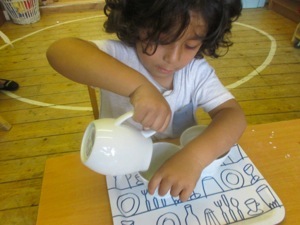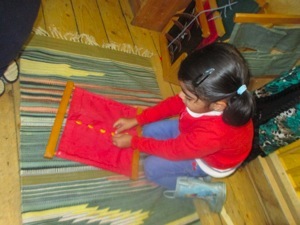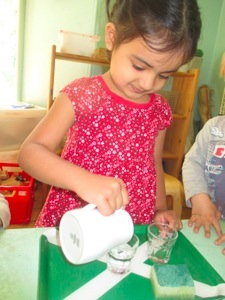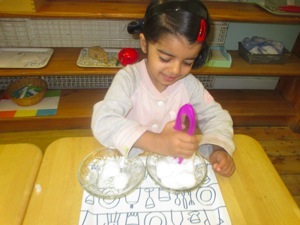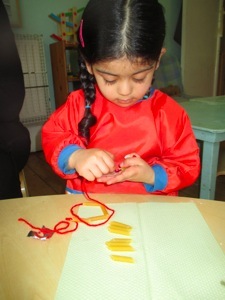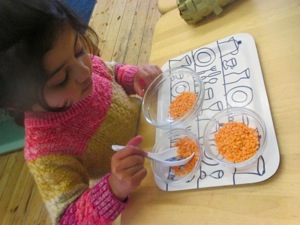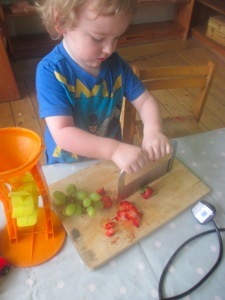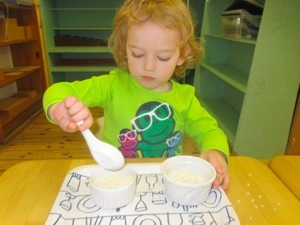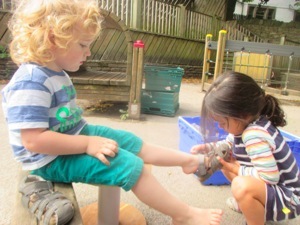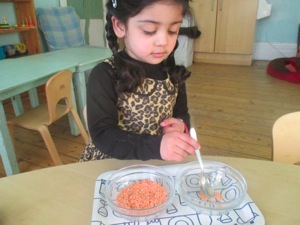“Children are human beings to whom respect is due, superior to us by reason of their innocence and of the greater possibilities of their future.” - Maria Montessori




Practical life – gaining independence in everyday activities, allowing the child to participate in the daily life of the family e.g. dressing, washing, and social skills. Instils care for self, for others and for the environment. Develops muscular control and concentration.
The purpose and aim of Practical Life is to help the child gain control in the coordination of his movement, and help the child to gain independence and adapt to his society. It is therefore important to “Teach teaching, not correcting” (Montessori) in order to allow the child to be a fully functional member in his own society. Practical Life Exercises also aid the growth and development of the child’s intellect and concentration and will in turn also help the child develop an orderly way of thinking.
Practical Life Exercises can be categorised into four different groups: Preliminary Applications, Applied Applications, Grace and Courtesy, and Control of Moment.
In the Preliminary Exercises, the child learns the basic movements of all societies such as pouring, folding, and carrying.
In the Applied Exercises, the child learns about the care and maintenance that helps every day life. These activities are, for example, the care of the person (i.e the washing of the hand) and the care of the environment (i.e dusting a table or outdoor sweeping).
In the Grace and Courtesy Exercises, the children work on the interactions of people to people.
In the Control of Movement Exercises, the child learns about his own movements and learns how to refine his coordination through such activities as walking on the line.
Practical Life
